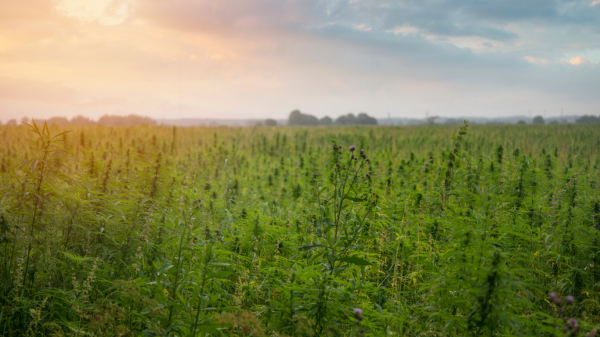On the quest for innovation and growth, countries worldwide are turning to collaborative measures with outcome-focused strategies. One approach that is gaining popularity in South Africa, is the Phakisa Action Lab. The word “Phakisa” is derived from the Sotho language meaning “hurry up / quick”. This model aims to address complex challenges by bringing together a diverse group of stakeholders for problem-solving and strategising. In this blog, we are going to take a close look into the Phakisa Action Lab, as well as their role within the future of the cannabis industry.
Understanding the Phakisa Approach
The Phakisa methodology was inspired by Malaysia’s Big Fast Results (BFR) approach, and was initially introduced in 2013. It has since been applied to various sectors within South Africa.
Here is the process followed by the Phakisa Action Lab:
- Identify the problem. The first step involves identifying a specific challenge within a particular sector and this could range from addressing youth unemployment to optimising healthcare delivery, or tackling the legislation for the cannabis industry.
- Stakeholder collaboration. A critical element of the Phakisa Action Lab is engaging all the relevant stakeholders through workshops, dialogues, and feedback sessions. All these diverse perspectives help to foster a better understanding of the issue at hand as well as the way forward.
- Setting goals and targets. Clear targets are defined, ensuring that all share a common vision, and they serve as the foundation of driving action and tracking the progress thereof.
- Implementation. The Phakisa Action Lab focuses on speedy implementation and experimentation allowing for agile responses and quick adjustments when facing any unforeseen challenges.
- Monitoring and evaluation. In order to aid tracking progress, regular monitoring and evaluation help track progress and help to highlight areas for improvement. This allows for adaptation and response to changing circumstances along the way.
The primary objectives of the Phakisa Action Lab are for collaboration, accelerated decision-making, and driving sustainable results. Embracing inclusivity, it allows stakeholders from government, industry, and civil society to work together towards shared goals.
Successful Case Studies of Phakisa Action Labs
The Phakisa Action Lab has had a number of successful case studies, and we hope to see a successful case study occurring with the National Cannabis Master Plan. Let’s take a look at two successful case studies:
- Ocean Economy Phakisa. In 2014, this case study was launched hoping to unlock the economic potential of South Africa’s oceans. By 2019, the initiative had achieved some very significant milestones such as creating over 6000 jobs and attracting millions in investments.
- Mining Phakisa. Focusing on transforming the mining sector, this Action Lab aimed to improve labour conditions, promote sustainable mining practices and increase local beneficiaries. Some notable achievements include advancements in health and safety standards and increased community engagement.
Gathered by the results of these case studies, we can only hope for the same promising results within the cannabis industry.
How Phakisa Action Lab Could Potentially Influence the Cannabis Industry
The cannabis industry overall has faced many challenges on the journey to trying to obtain legalisation over the years. In short, in 2018 the Constitutional Court ruled cannabis legal to grow, use, and possess for private purposes. The government was given a maximum of two years to write laws around the ConCourt ruling, and all this time we have been waiting to see the fruit of this ruling. In 2020, the Cannabis for Private Purposes Bill was introduced with the aim to regulate the industry, encouraging safe use of cannabis, providing for the expungement of criminal records of persons convicted of the possession and use of cannabis, deleting and amending provisions of laws. To date, this law has never been passed and we still eagerly await results or feedback from the government.
This is where a turnaround is about to happen and voices are finally being heard. It seems the cannabis legalisation process is now back on track after a breakthrough of five days of real intense meetings with over 100 diverse stakeholders in the industry. Amongst these stakeholders were representatives from national and provincial government, business, labour, communities, traditional and Rastafrian leaders, scientists, legal experts and other key stakeholders including representatives from the NPO, Fields of Green for ALL. They laid the foundation for a more systematic approach to cannabis legalisation. For the very first time, we see the South African Government taking the issue of recreational cannabis by the horns and has shown promise that the full legalisation of cannabis is just around the corner.
Some discussions held were reviewing the Medicines Act, enabling cannabis growing for non-medicinal uses, including industrial purposes. Mechanisms were explored that will fast-track the removal of cannabis from the Drugs Act. The Phakisa also resolved to reinforce previous instructions to SAPS to respect the rights of cannabis growers and users, ensuring that less intrusive measures are used when securing an accused’s court attendance. Steps will be taken to ensure that SAPS treats growers, users, and dealers of cannabis with respect for their constitutional rights.
The success of the Phakisa Action Lab is due to the ongoing work done by Presidential cannabis advisor, Garth Strachan behind the scenes. He put a great deal of effort into driving cannabis legalisation and has already built the trust of the community organisations, as well as the private sector. There will be finance and support structures for traditional growers and for new small-scale entries into the market. We foresee a great future for the cannabis industry with the Phakisa Action Lab driving the case.
The closing of the Cannabis Phakisa was followed up by a letter from the presidency on 23 June 2023. The Phakisa Action Lab has opened the doors for urgency in the implementation of the National Cannabis Master Plan.
Final Words
The Phakisa Action Lab has emerged as a promising approach to tackle complex issues facing South Africa as a whole, with one of them being Cannabis legalisation. For the first time in South African history, we have hope that things are on the move and we will soon see positive results, which will in turn unlock innovation, drive sustainable growth within the industry and create employment opportunities for many.
The Phakisa Action Lab not only plays a vital role in shaping the future of the cannabis industry, but the future of the country as a whole as they tackle the complex issues South Africa faces. Continue to follow the Cannacopia Blog for further developments on the legalisation of cannabis in South Africa.




